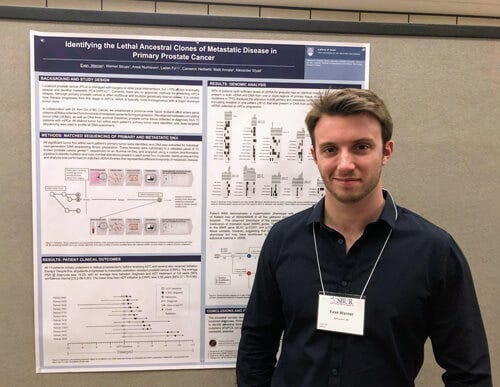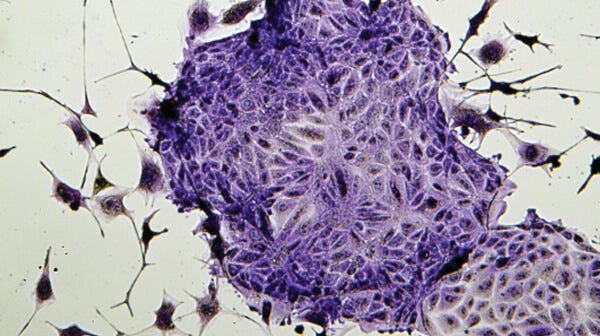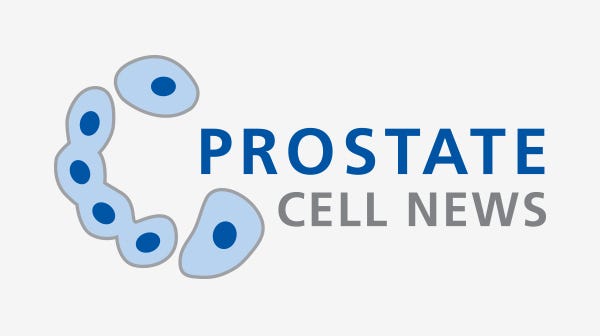Evan Warner describes his work in the Wyatt lab studying the mutational landscape of late-stage prostate cancer
Predicting the Risk of Relapse in Prostate Cancer

Evan Warner is a graduate student in Dr. Alexander Wyatt’s lab at the Vancouver Prostate Center and the University of British Columbia. In 2018, he shared with us a scientific discovery that inspired his own research and received a travel award to attend a conference of his choice. He chose to attend the Society for Basic Urologic Research (SBUR) Annual Meeting 2018.
Mary-Claire King is a world-renowned human geneticist famous for her discovery of BRCA1, a gene responsible for the hereditary nature of many breast and ovarian cancer cases; this finding has revolutionized the field of disease research. I recently attended a lecture given by her in Vancouver, and was inspired by her accomplishments and ongoing passion for the field of cancer research. Individuals like her stand as a role model for all scientists, and are a daily reminder of what enthusiasm (backed by scientific rigor) can accomplish.
Evan Warner, Vancouver Prostate Center
Science moves forward when you share it with the world, so we asked Evan to share some information on his own research and on his experience at SBUR 2018.
The Research: The Mutational Landscape of Prostate Cancer
Can you tell us about your research?
I am currently studying the mutational landscape of late-stage prostate cancer.
Our project aims to identify the characteristics of prostate tumors that indicate an increased risk of recurrence after surgery. Though most cases of primary prostate cancer respond well to localized treatment, ~10% of men relapse with a more aggressive form of the disease known as castration-resistant prostate cancer (CRPC). Currently, there are no validated methods for predicting which localized tumors are likely to recur. Moreover, few studies have been able to describe the genetic changes that occur in prostate tumors over the progression of disease.
For each patient in our study, we extracted DNA from tumor tissue that had previously been obtained during surgical removal of the prostate. We also isolated tumor DNA from the blood of these same patients, who had now relapsed with CRPC. This technique, known as a “liquid biopsy”, is possible because dying tumor cells are constantly shedding DNA into the patient’s bloodstream. We profiled DNA from both early and late-stage disease for each patient, and identified several key genetic mutations that were present in both time points.
Mutations present in both early and late-stage disease indicate that the tumor had spread beyond the prostate by the time it was surgically removed, and was more aggressive than initially believed. Therefore, we believe that these mutations could serve as an indicator of primary tumors with an increased risk of recurrence after surgery.
If clinicians can recognize which patients have primary tumors with a heightened chance of relapse, they can ensure that these men are closely monitored in the years after surgery. In the case of cancer resurgence, these patients can be prioritized for rapid therapeutic intervention.
The Conference: Society for Basic Urologic Research (SBUR) 2018, California, USA
Why did you choose to attend SBUR 2018?
SBUR was created to support researchers dedicated to urologic sciences and has been driving collaboration between experts for over 30 years. Urologic cancer (prostate, bladder, kidney, testis, and penis) remains one of their principal areas of focus, and their annual conference provides an opportunity for the dissemination of novel findings. The 2018 SBUR Annual Meeting was a gathering where academic researchers, clinicians, and health-care professionals presented an array of diverse perspectives on how to drive novel improvements in healthcare as it relates to genitourinary disease. This conference was a chance to present my findings on the genomic analysis of early- and late-stage prostate cancer.

Evan Warner Presenting a Poster at SBUR 2018
Can you tell us about your favorite presentations at the conference?
I greatly enjoyed the keynote speech presented by Dr. Jason Carroll (Cancer Research UK, Cambridge Institute) titled “Mechanisms of Estrogen-Receptor Mediated Transcription”. Dr. Carroll provided the audience with some unique insights on the novel tools used for studying transcription factor biology. Though hormone depletion has long been the standard-of-care for breast cancer treatment, Dr. Carroll’s recent findings suggest an anti-proliferative effect associated with progesterone administration. Dr. Carroll’s team used chromatin immunoprecipitation assays to map the binding sites of the estrogen receptor (ER) complex. They showed that progesterone agonists can actually push the ER to a more favorable binding site and are associated with improved patient survival. This seminal work challenged some of the clinical community’s most strongly held beliefs on the biology of breast cancer and is an important reminder that no scientific postulate is above question.
How has attending this conference inspired you or affected your current research?
Attending the SBUR 2018 Annual Meeting presented me with the opportunity to meet, network, and collaborate with diverse professionals in my field. I gained further awareness and appreciation for other advancements in the treatment of urologic disease. Moving forward, I am inspired to expand the project I presented to include new areas of research, including my recent interest on the role of DNA damage repair disruption in metastatic prostate cancer. I plan to return to the SBUR Annual Meeting again next year with novel findings to share.
A Word of Advice: Read Often, Read Voraciously, Read Widely
What advice do you have for the next generation of scientists?
When I first started my Masters degree, Dr. Wyatt shared with me an article from Science Magazine:
“Fortune favors the well read". The message of this article is self-explanatory, but is one that is often forgotten by new graduate students. Reading often, reading voraciously, and reading material outside of one's immediate field of research is the best way to prepare for any future opportunity.
Related Resources
Reproducible 3D Spheroid Production
Prostate Research
Prostate Cell News
Request Pricing
Thank you for your interest in this product. Please provide us with your contact information and your local representative will contact you with a customized quote. Where appropriate, they can also assist you with a(n):
Estimated delivery time for your area
Product sample or exclusive offer
In-lab demonstration





